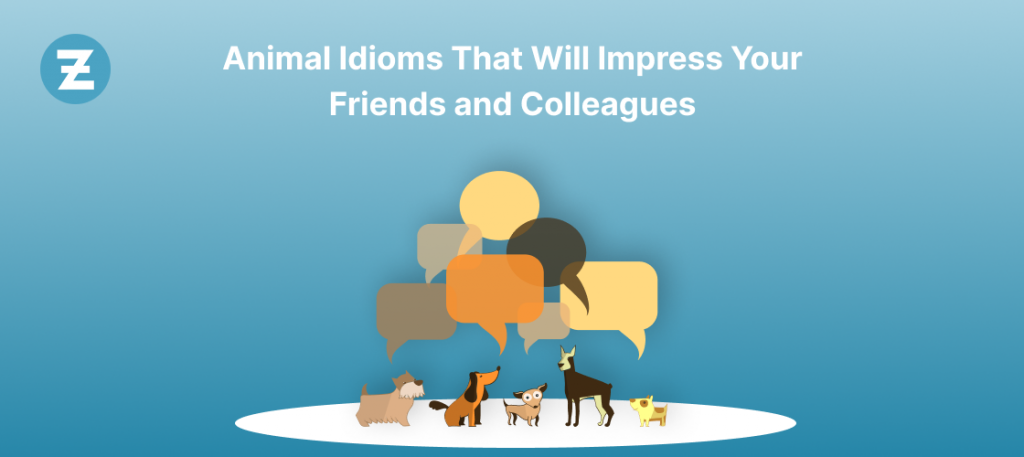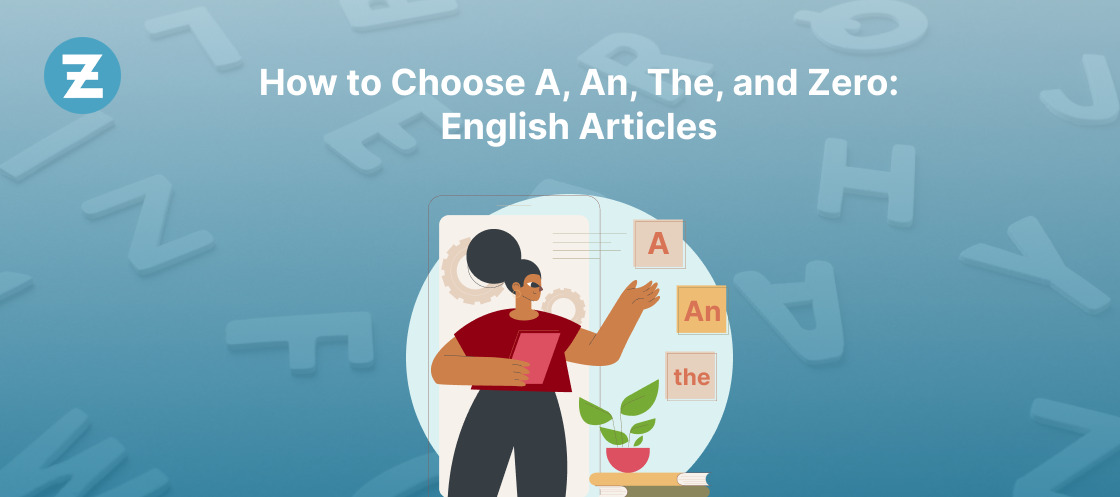As a language learner, you always seek ways to improve your vocabulary and make you sound more fluent. One fun and effective way to do that is by incorporating animal idioms into your speech. Not only do they make your language more colorful, but they also convey a deeper meaning that simple words cannot.
In this article, we will explore 25 animal idioms to help you spruce up your English vocabulary and impress your friends and colleagues.
So, let’s dive in and learn some new expressions that will make you sound like a native speaker in no time!
Read Also: Common English Words with Multiple Meanings
-
Let the cat out of the bag
Meaning: To reveal a secret or disclose information meant to be kept hidden.
This idiom originates from a trick play during old markets, where a person would replace a valuable item with a less valuable one and put it in a bag. If the buyer didn’t inspect the bag and “let the cat out,” they would discover the deception later.
Example: We were planning a surprise party, but John accidentally let the cat out of the bag when he mentioned it to Sarah.
-
Hold your horses
Meaning: To wait or be patient.
The phrase alludes to the need to control and restrain horses before starting a race or journey, emphasizing the importance of patience and not rushing into something.
Example: I know you’re excited, but hold your horses! Let’s think through this decision before jumping in.
-
The early bird catches the worm
Meaning: Being proactive and acting promptly can lead to success or an advantage.
This saying suggests that waking up early (like a bird) and being proactive can seize opportunities before others.
Example: If you want to secure the best deals, you need to arrive at the flea market early. Remember, the early bird catches the worm!
-
Kill two birds with one stone
Meaning: To achieve two goals with a single action or effort.
This idiom uses the image of hitting two birds with a single stone, implying efficiency and maximizing productivity by accomplishing multiple tasks simultaneously.
Example: Instead of making two separate trips, we can combine our errands and pick up groceries and drop off the package, killing two birds with one stone.
| Upgrade your English pronunciation and listening abilities with Zoundslike’s interactive learning platform! |
-
A fish out of water
Meaning: To feel uncomfortable or out of place in a particular situation or environment.
This phrase describes the disorientation and unease experienced by a fish when it is removed from its natural habitat, drawing a parallel to a person who feels out of their element.
Example: As a city dweller, visiting a rural farm made me feel like a fish out of water.
-
Like a bull in a china shop
Meaning: Refers to someone who is clumsy, careless, or lacks finesse in delicate or fragile situations.
The idiom likens the behavior of a bull, known for its size and strength, in a fragile and delicate space like a china shop, where it is likely to cause damage.
Example: Be careful! He stormed into the meeting and started criticizing everyone’s ideas, like a bull in a china shop.
-
Don’t count your chickens before they hatch
Meaning: It advises against relying on something that has not happened yet or being overly confident about an expected outcome.
The idiom warns against premature expectations, comparing the anticipation of hatching chicks to counting them before they emerge from their eggs.
Example: Yes, we’ve submitted the proposal, but let’s not count our chickens before they hatch. We still need approval from the higher-ups.
Read Also: Idioms to Make You Sound Like a Native English Speaker
-
When pigs fly
Meaning: Signifies something highly unlikely or improbable to occur.
Pigs cannot fly, so this idiom humorously refers to an event or situation that is almost impossible or will never happen.
Example: Sure, I’ll lend you my car when pigs fly! You never take care of your own belongings.
-
A wolf in sheep’s clothing
Meaning: Refers to someone who appears harmless or friendly but is deceitful or dangerous.
This idiom draws from a wolf disguising itself as a sheep to deceive its prey, highlighting the hidden intentions or factual nature of a person or situation.
Example: Be careful of him. He seems nice, but he’s a wolf in sheep’s clothing. He’s only pretending to be your friend.
-
Let sleeping dogs lie
Meaning: To avoid stirring up trouble or unnecessary conflict by leaving a situation as it is.
The idiom suggests it is better not to disturb or provoke a potentially troublesome situation, like letting sleeping dogs rest peacefully.
Example: The argument happened a while ago, and things have settled down. It’s best to let sleeping dogs lie and not bring it up again.
-
A bird’s-eye view
Meaning: Refers to a broad and overall perspective or understanding of something.
This idiom stems from the view one would have from high above, like a bird flying in the sky, allowing for a comprehensive and panoramic understanding of a situation.
Example: From the top of the mountain, you get a stunning bird’s-eye view of the entire city.
-
Monkey see, monkey do
Meaning: Describes the tendency of people to imitate or mimic the actions of others without much thought.
This phrase likens humans imitating the behavior of monkeys, highlighting the idea of blindly following or copying others without understanding the rationale behind the actions.
Example: Children often learn by observing and imitating. Monkey see, monkey do!
-
A leopard can’t change its spots
Meaning: Implies that a person’s character or nature is unlikely to change, especially if they have a history of certain behaviors or traits.
This idiom refers to the patterned spots on a leopard’s fur, which are distinctive and unchangeable. It suggests that someone’s inherent qualities or tendencies are ingrained and difficult to alter.
Example: Don’t expect him to suddenly become honest. A leopard can’t change its spots, and he has always been deceitful.
-
Stubborn as a mule
Meaning: Describes someone who is highly obstinate, unyielding, or resistant to change.
Mules are known for their stubbornness and resistance to being led or coerced. This idiom likens a person’s stubbornness to that of a mule.
Example: You won’t be able to convince her otherwise. She’s as stubborn as a mule and never changes her mind.
Read Also: Ways to improve your English listening skills
-
A snake in the grass
Meaning: Refers to a person who appears harmless or friendly but is secretly treacherous or deceitful.
This idiom draws from the image of a hidden snake lurking in the grass, symbolizing hidden danger or betrayal.
Example: Be cautious of him. He acts friendly, but he’s a snake in the grass. He’ll stab you in the back when you least expect it.
-
Lion’s share
Meaning: Refers to the largest or most significant portion of something, often implying an unequal distribution.
This phrase comes from Aesop’s fable, “The Lion’s Share,” where the lion claims the most significant portion of a kill. It represents the majority or the biggest share.
Example: He always takes the lion’s share of the profits, leaving very little for the rest of us.
-
Busy as a bee
Meaning: Describes someone who is very busy, active, or industrious.
Bees are known for their constant buzzing activity and diligent work gathering nectar. This idiom highlights someone’s bustling and productive nature.
Example: I have a lot of deadlines to meet this week, so I’ll be as busy as a bee trying to get everything done.
-
To let the cat out of the bag
Meaning: To reveal a secret or disclose information that was meant to be kept hidden.
This idiom has been covered earlier, but to recap, it refers to the act of unintentionally or deliberately disclosing confidential information.
Example: I was planning a surprise party for my sister, but she accidentally let the cat out of the bag by finding the invitation.
-
In the doghouse
Meaning: To be in trouble or in a state of disfavor with someone.
Being in the doghouse implies that one has done something to upset or disappoint another person, resulting in temporary displeasure.
Example: I forgot our anniversary, and now I’m in the doghouse with my partner. I need to make it up to them.
-
To have a whale of a time
Meaning: To have an extremely enjoyable or exciting time.
This idiom suggests having a great time, comparable to the immense size and joyous nature associated with a whale.
Example: We went on vacation to the beach and had a whale of a time. We enjoyed swimming, sunbathing, and exploring the beautiful surroundings.
-
Dog eat dog
Meaning: Refers to a ruthless, cutthroat, or competitive environment where people are willing to do anything to succeed, even at the expense of others.
This phrase conveys the idea of fierce competition and the survival instinct observed in nature, where stronger animals may prey on weaker ones.
Example: The corporate world can be dog eat dog, with everyone vying for promotions and stepping on each other to get ahead.
Read Also: Best Tongue Twisters for English Pronunciation Practice
-
To have a bee in your bonnet
Meaning: To be preoccupied or obsessed with a particular idea or concern.
This idiom likens the buzzing and persistent nature of a bee inside a bonnet (a type of hat) to someone who cannot stop thinking about or discussing a specific topic.
Example: She has had a bee on her bonnet about environmental issues lately, and she’s always talking about ways to reduce waste.
-
Crocodile tears
Meaning: Refers to insincere or fake displays of sadness or remorse.
This phrase comes from the belief that crocodiles shed tears while devouring their prey, creating a false impression of sorrow. It implies someone is pretending to be upset or remorseful.
Example: He apologized with crocodile tears, but I could tell he wasn’t genuinely sorry for what he did.
-
Fishy
Meaning: Describes something suspicious, dubious, or not quite right.
This term derives from the notion that fish, when not fresh, emit an unpleasant odor, suggesting that something may be off or questionable.
Example: The whole situation seems fishy to me. I don’t trust his explanations.
-
To take the bull by the horns
Meaning: To confront a difficult or challenging situation directly and with determination.
This idiom alludes to grabbing a bull’s horns to control it, symbolizing the courage and initiative required to face and tackle a problem head-on.
Example: Instead of avoiding the issue, it’s time to take the bull by the horns and address the problem directly.
| Improve your listening and speaking skills in English with Zoundslike’s fun and easy-to-use app! |
-
At a snail’s pace
Meaning: Describes something or someone that is moving very slowly or at a sluggish speed.
This idiom refers to the slow movement of a snail, emphasizing the slowness or lack of progress in a particular situation.
Example: Traffic was so congested that we were moving at a snail’s pace on the highway.
-
Open a can of worms
Meaning: To create a situation or topic that leads to unexpected problems or complications.
This idiom suggests that opening a can of worms can result in many issues emerging, similar to opening a container filled with wriggling worms.
Example: Bringing up the topic of politics at the family dinner table can open a can of worms, leading to heated debates and arguments.
-
Wild goose chase
Meaning: Refers to a futile or pointless pursuit of something unlikely to be obtained.
The phrase originates from the futility of chasing wild geese, known for their unpredictable flight patterns and difficulty catching.
Example: Searching for your missing keys in the park will be a wild goose chase. You probably dropped them somewhere else.
-
The world is your oyster
Meaning: Suggests that everything is possible and available to you, and you have the potential for success and fulfillment.
This idiom alludes to the idea that an oyster contains a precious pearl, symbolizing the endless possibilities and opportunities that lie before you.
Example: Now that you’ve graduated, the world is your oyster. You can pursue any career or dream you desire.
Read Also: 16 Ways to Improve Your English Spelling
-
Watching like a hawk
Meaning: Observing something or someone very closely and attentively.
This idiom compares someone’s intense and vigilant observation to a hawk’s sharp vision and alertness, a bird known for its keen eyesight.
Example: The detective was watching the suspect like a hawk, waiting for any signs of suspicious behavior.
-
Mad as a hornet
Meaning: Extremely angry or furious.
This idiom likens someone’s anger to the aggressive behavior of a hornet, a stinging insect known for its aggressive nature when provoked.
Example: When he found out about the betrayal, he was mad as a hornet and confronted the person responsible.
-
Eagle eyes
Meaning: Refers to having exceptionally sharp or keen eyesight, often used to describe someone very observant or attentive to details.
This phrase draws from the impressive vision of an eagle, known for its keen eyesight and ability to spot prey from great distances.
Example: She has eagle eyes for typos. She can easily spot even the smallest errors in a document.
-
Get your ducks in a row
Meaning: To get organized or prepared, to have everything in order.
This idiom implies aligning and arranging things properly, just as ducks in a row move neatly and orderly.
Example: Before the big presentation, make sure to get your ducks in a row. Have all the necessary materials ready and rehearse your speech.
-
I’ll be a monkey’s uncle
Meaning: Expresses disbelief or surprise about something.
This phrase humorously suggests that if the unlikely or unexpected thing being discussed were to happen, it would be as surprising as being related to a monkey as an uncle.
Example: If he manages to finish the project on time, I’ll be a monkey’s uncle! He’s never been punctual before.
-
Pet peeve
Meaning: Refers to something that irritates or annoys someone on a personal level.
This idiom combines the term “pet,” meaning personal or favorite, with “peeve,” which denotes a source of annoyance. It describes an individual’s particular irritations or dislikes.
Example: People who chew with their mouths open is one of my pet peeves. It’s just so unpleasant to listen to.
-
Pick of the litter
Meaning: Refers to the best or most desirable choice among a group.
This phrase originates from the practice of selecting the best puppy from a litter of puppies. It implies having the opportunity to choose the finest option.
Example: As the valedictorian, she had the pick of the litter when it came to college acceptances. She could choose any university she wanted to attend.
-
Puppy love
Meaning: Describes the affectionate feelings or infatuation experienced by young individuals, typically teenagers.
This idiom reflects the intense but often short-lived romantic feelings and fascination that young people may have during their adolescence, akin to the excitement and naivety of young puppies.
Example: They were experiencing puppy love and thought it was true love, but they soon realized it was just a passing infatuation.
-
Like shooting fish in a barrel
Meaning: Refers to a task or situation that is extremely easy or effortless.
This idiom paints a picture of shooting fish confined to a barrel, making it an effortless task due to the lack of challenge or resistance.
Example: With all the evidence against him, proving his guilt will be like shooting fish in a barrel for the prosecutor.
Read Also: 27+ Essential UK English Slang for Language Learners
-
A little bird told me
Meaning: Indicates that the speaker obtained information from an undisclosed or anonymous source.
This phrase suggests that the speaker learned something from a secretive or unknown informant, likening the conveyance of information to a whisper from a little bird.
Example: I heard that they’re planning a surprise party for you, but a little bird told me, so don’t let on that you know.
-
Butterflies in one’s stomach
Meaning: Describes the feeling of nervousness, anxiety, or excitement in the stomach, often experienced before a significant event or encounter.
This idiom uses the image of fluttering butterflies in one’s stomach to depict the sensation of nervous anticipation.
Example: Before going on stage, she always gets butterflies in her stomach, but it disappears once she starts performing.
-
All bark and no bite
Meaning: Refers to someone who makes a lot of threats or boasts but fails to take any real action or follow through on their words.
This idiom suggests that the person is like a dog that barks loudly but does not bite or act aggressively.
Example: He talks tough, but he’s all bark and no bite. He never follows through on his threats.
-
Which came first, the chicken or the egg?
Meaning: Poses a philosophical question about the origin or cause of something with no clear answer or resolution.
This age-old question challenges the concept of causality and creates a paradox by questioning whether the chicken or the egg came first, as each seems to rely on the other for existence.
Example: The debate about whether nature or nurture has a greater impact on human development is like asking which came first, the chicken or the egg?
-
Wolf in sheep’s clothing
Meaning: Refers to someone who disguises their true malicious or deceitful nature by pretending to be harmless or innocent.
This idiom illustrates the concept of deception, where a wolf hides among a flock of sheep, pretending to be one of them to gain trust or access without suspicion.
Example: Be careful of that charming new colleague. He may seem friendly, but he could be a wolf in sheep’s clothing.
-
You can’t teach an old dog new tricks
Meaning: Suggests that teaching or changing someone is difficult, especially when they are set in their ways or resistant to new ideas.
This phrase implies that older individuals or those with established habits or beliefs are less receptive to learning or adapting.
Example: I’ve tried to teach my grandfather how to use a smartphone, but he insists on his old flip phone. You know what they say, you can’t teach an old dog new tricks.
| Improve your English language proficiency with Zoundslike’s fun and interactive learning platform. |
Conclusion
To sum up, mastering animal idioms effectively enriches your English language skills and makes your communication more captivating. Using these idioms can make your conversations more engaging and add a touch of humor and expressiveness to your language.
Additionally, incorporating animal idioms into your speech and writing can impress your colleagues, friends, and native speakers. And if you’re looking to further improve your vocabulary, Zoundslike is an excellent language-learning app that can help you speak like a native with ease and confidence.
Download the app now!
FAQs
Q.1: What are animal idioms?
Animal idioms are phrases or expressions in English that use animals as a metaphorical reference to convey a particular meaning or idea.
Q.2: Why are animal idioms essential?
Animal idioms are essential because they add color, creativity, and cultural depth to English. They allow for vivid and expressive communication, making conversations more exciting and engaging.
Q.3: How can learning animal idioms improve my English vocabulary?
Learning animal idioms can improve your English vocabulary by expanding your range of expressions and helping you understand and use figurative language more effectively. It allows you to communicate ideas and emotions more nuanced and engagingly.
Q.4: Are animal idioms commonly used in everyday English?
Yes, animal idioms are commonly used in everyday English. People use them in various situations, including casual conversations, formal discussions, and written communication. Becoming familiar with these idioms will enhance your comprehension of English and enable you to communicate more naturally.
Q.5: Can I use animal idioms in formal writing?
While animal idioms are more commonly used in informal or spoken language, they can also be used in certain types of formal writing. However, it is essential to consider the context and tone of your writing. In academic or professional settings, it is generally recommended to use idioms sparingly and ensure they are appropriate for the given context.
Q.6: Can I create my animal idioms?
While creating your own idiomatic expressions is possible, it may take time for them to gain recognition and acceptance. It is generally easier and more effective to learn and use established animal idioms that are already widely recognized and understood by native English speakers.








